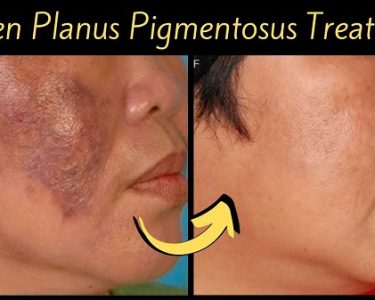Lichen Planus
Lichen planus is a chronic recurrent rash which is due to inflammation. The rash is characterized by small, flat topped, many sided bumps which can grow together into rough, scaly plaques on the skin. Lichen planus of the skin affects men and women equally. This disease can develop on in or several parts of the body. It can appear on the skin or inside the mouth. Lichen planus pigmentosus is a rare variant of cutaneous lichen planus which is characterized by lichenoid lesions in sun exposed or flexural areas of the body. Sometimes it appears in both places. Lichen planus can even change the way a person’s fingernails or toenails. There are some rare variations of the condition that are more serious and painful. It is not an infectious disease. Therefore it cannot spread from one person to another. Our mouth is affected about 50% due to lichen planus.

How to Remove Lichen Planus Marks Home Remedies
Lichen planus marks can be stubborn, but several home remedies may help lighten them naturally. Aloe vera is one of the best options due to its soothing and healing properties. Applying fresh aloe vera gel to the affected areas daily can promote skin regeneration and reduce pigmentation. Additionally, turmeric, known for its anti-inflammatory and antibacterial effects, can be mixed with honey or yogurt to create a gentle face mask that helps fade scars over time.
Another effective remedy is coconut oil, which is rich in antioxidants and fatty acids that nourish the skin and aid in the healing process. Massaging coconut oil onto the marks can improve skin texture and gradually lighten discoloration. Apple cider vinegar, diluted with water, can also be used as a toner to exfoliate dead skin cells and promote new cell growth. However, since vinegar can be strong, it’s important to do a patch test before applying it to larger areas.
For those looking for a more intensive treatment, natural exfoliants like oatmeal or sugar scrubs can help remove dead skin layers and reveal fresher, brighter skin. Additionally, keeping the skin hydrated by drinking plenty of water and consuming a diet rich in vitamins C and E can boost collagen production and aid in skin repair. Consistency is key with home remedies, so regular application and patience will yield the best results in fading lichen planus marks naturally.
Natural Remedies for Oral Lichen Planus
Oral Lichen Planus (OLP) is a chronic inflammatory condition that affects the mucous membranes inside the mouth. Characterized by white, lacy patches, sores, and sometimes painful ulcers, it can significantly impact daily life, making eating, drinking, and even talking uncomfortable. While the exact cause of OLP is still unknown, it is believed to be linked to immune system dysfunction. Traditional treatments often include steroids or immunosuppressants, but many individuals are seeking natural alternatives to manage the condition. Herbal remedies have shown promise in alleviating symptoms and promoting healing, offering a more holistic approach to treatment.
What is the Best Natural Treatment for Lichen Planus
Lichen planus is a chronic inflammatory condition that affects the skin, mouth, and sometimes nails or scalp, causing itching, pain, and discomfort. While conventional treatments like corticosteroids and antihistamines are commonly used, many individuals seek natural remedies to manage symptoms effectively. The best natural treatment for lichen planus often involves a combination of dietary changes, herbal remedies, and stress management techniques. Anti-inflammatory foods such as turmeric, ginger, and omega-3-rich fish can help reduce flare-ups, while avoiding triggers like spicy foods and processed sugars may prevent irritation.
Herbal treatments have also shown promising results in soothing lichen planus symptoms. Aloe vera gel, known for its anti-inflammatory and cooling properties, can be applied to affected areas to reduce itching and redness. Tea tree oil, diluted with a carrier oil, may help prevent infections in oral lichen planus cases. Additionally, licorice root extract has been studied for its immune-modulating effects, making it a potential remedy for managing inflammation. Drinking chamomile or green tea, both rich in antioxidants, can further aid in calming the immune response that contributes to lichen planus.
Stress management plays a crucial role in controlling lichen planus, as stress is a common trigger for flare-ups. Practicing relaxation techniques such as meditation, deep breathing, and yoga can help regulate immune function and reduce symptom severity. Adequate sleep, regular exercise, and mindfulness practices also contribute to overall well-being and may prevent worsening of the condition. While natural treatments can be highly beneficial, it is important to consult a healthcare professional before starting any new regimen to ensure safety and effectiveness.
Natural Treatment for Lichen Planus
In most of the cases lichen planus of the skin clear up on their own within six to nine months. Treatment can make your skin better. There is no known medical treatment for lichen planus, but Natural Treatment for Lichen Planus is often helpful in relieving itching and improving the appearance of the rash until it goes away. The goal of the treatment is to reduce your symptoms and speeds healing of the skin lesions. Following are the some Herbal Treatment for Lichen Planus given below:
Aloe Vera
The gel of aloe Vera is perfect in nature and it contains healing properties. Take some aloe Vera gel and apply on affected areas. It will reduce the inflammation by anti-inflammatory nature of the gel.
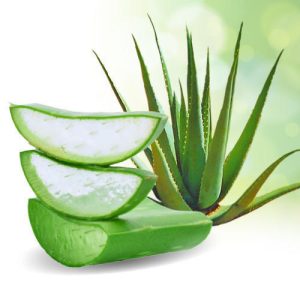
Yogurt
Yogurt is a very natural type of treatment to deal with Oral Lichen Planus issue. Yogurt has good type of bacteria which is necessary for deal with different types of problems.
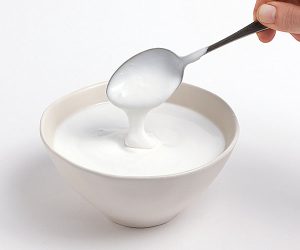
Baking Soda
Baking soda is a very effective for the type of solution to deal with Lichen Planus Herbal Treatment. Take baking soda and apply on infected parts of the mouth including tongue and gums.

Turmeric
Turmeric is also effective for cure Oral Lichen Planus. You can add turmeric oil in your diet or can apply it in your mouth for heal the problem.
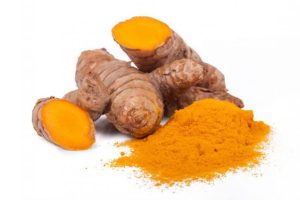
Tea Tree Oil
Tea tree oil, derived from the leaves of the Melaleuca alternifolia plant native to Australia, has long been used for its antiseptic, antifungal, and anti-inflammatory properties. Research has shown that tea tree oil can be beneficial for a variety of skin conditions, including acne, dandruff, and fungal infections. Its potent antimicrobial and anti-inflammatory qualities make it a promising option for managing inflammatory skin conditions like lichen planus.
Benefits of Tea Tree Oil for Lichen Planus
- Anti-inflammatory Effects
Tea tree oil has well-documented anti-inflammatory properties. Applying diluted tea tree oil to areas affected by lichen planus may help reduce the redness, swelling, and irritation associated with the condition. This can provide significant relief from the discomfort of the rash and may help prevent flare-ups. - Antimicrobial Properties
Lichen planus can sometimes lead to secondary infections due to scratching or open sores, particularly in more severe cases. Tea tree oil is known for its antimicrobial effects, which can help reduce the risk of infections by inhibiting the growth of bacteria and fungi. This makes it an excellent choice for supporting skin healing and preventing complications. - Soothing Itchiness
The intense itching associated with lichen planus can be a major source of distress. Tea tree oil has natural soothing properties, and when diluted and applied topically, it may help relieve itching and irritation, allowing for better comfort and reduced scratching. - Promoting Skin Healing
Tea tree oil’s ability to promote skin healing can be particularly beneficial for those with lichen planus, as the lesions often take time to heal. The oil may help speed up the recovery process by promoting cell regeneration and preventing scarring.
How to Use Tea Tree Oil for Lichen Planus
When using tea tree oil for lichen planus, it’s essential to dilute it properly before applying it to the skin. Tea tree oil is highly concentrated and can cause irritation or a reaction if used undiluted.
- Diluted Tea Tree Oil Application
Mix a few drops of tea tree oil with a carrier oil, such as coconut oil, olive oil, or jojoba oil. A good ratio is about 1-2 drops of tea tree oil per tablespoon of carrier oil. Apply the mixture to the affected areas 1-2 times a day, gently massaging it into the skin. - Tea Tree Oil in Bathwater
For widespread lesions or irritation, you can add a few drops of tea tree oil to your bath water. Make sure to dilute the oil well in the water before soaking. This can provide relief to larger areas of the skin affected by lichen planus. - Tea Tree Oil and Aloe Vera
Aloe vera gel is known for its soothing and hydrating properties, and when combined with tea tree oil, it can offer added comfort. Mix a small amount of aloe vera gel with a drop or two of tea tree oil and apply it to affected areas for a cooling and anti-inflammatory effect.

Almonds
Almonds are rich in of vitamin E which proves beneficial for cure the Lichen Planus. Increase the amount of almonds in your diet in order to get its benefits.
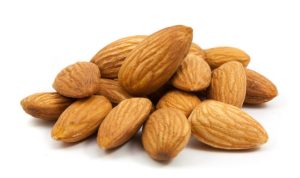
Orange Juice
Orange juice is a good source of vitamin C. some chemicals in the body is responsible for the formation of such problems. Regular drink of orange juice can give you.

Ginger
Ginger is another good Herbal Treatment for Lichen Planus. Ginger has anti-inflammatory and antioxidant features Apply ginger juice on affected areas and as a dietary tip, drink regular cups of ginger tea.
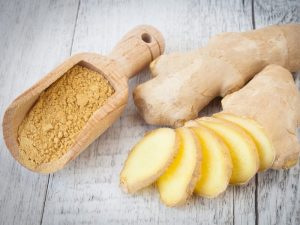
Oats
Oats are great for the skin. It can also give relief to itchy skin. Take an oatmeal bath once or twice a week. Apply a mixture of oats and water on affected areas.
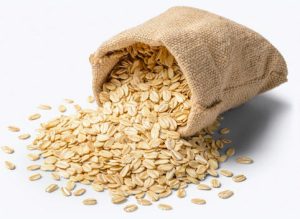
Valerian
Herbs for Lichen Planus have calming effects on mind and are good for stress management. Drink a cup of valerian tea a sometimes in a week.
cup of valerian tea
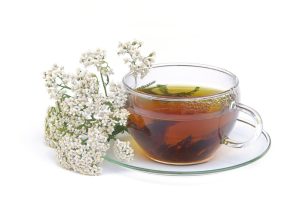
Coconut Oil for Lichen Planus
Coconut oil is a popular natural remedy for managing lichen planus, a chronic inflammatory skin condition that causes itchy, purplish rashes and lesions. Known for its anti-inflammatory, antimicrobial, and moisturizing properties, coconut oil can help soothe irritated skin, reduce redness, and promote healing. Applying virgin coconut oil directly to affected areas may provide relief from itching and discomfort while preventing secondary infections caused by scratching. Additionally, coconut oil contains lauric acid, which has antibacterial and antiviral properties that may support skin barrier function and overall skin health.
Beyond topical application, some individuals use coconut oil as part of an anti-inflammatory diet to help manage autoimmune-related conditions like lichen planus. Consuming coconut oil in moderation may contribute to overall immune support, thanks to its medium-chain fatty acids that promote gut health and reduce systemic inflammation. However, while coconut oil may provide symptomatic relief, it is not a cure for lichen planus. Consulting a healthcare professional before using coconut oil as a remedy is recommended, especially for those with allergies or pre-existing skin conditions.

Benefits of Natural Remedies for Lichen Planus
Lichen Planus is a chronic inflammatory skin condition that affects millions of people worldwide. Its symptoms include itchy, reddish-purple bumps or patches on the skin, as well as painful sores and ulcers in the mouth, genitals, and other affected areas. While there is no known cure for Lichen Planus, natural remedies can significantly alleviate its symptoms and improve the overall quality of life for those living with this condition. We will explore some of the benefits of using natural remedies for Lichen Planus.
1. Gentle and Safe on the Skin
One of the primary advantages of natural remedies for Lichen Planus is their gentle nature. Unlike conventional medications that may have harsh side effects, natural remedies are derived from plant-based ingredients and are generally more gentle on the skin. These remedies often contain soothing properties that can help reduce inflammation, calm itching, and promote healing without causing further irritation to already sensitive skin.
2. Effective in Reducing Inflammation
Inflammation is a key component of Lichen Planus, causing discomfort and exacerbating symptoms. Natural remedies such as aloe vera gel, chamomile cream, or turmeric paste have powerful anti-inflammatory properties that can help alleviate redness, swelling, and itchiness associated with this condition. Applying these remedies topically can provide much-needed relief to affected areas and promote faster healing.
3. Rich in Antioxidants
Lichen Planus has been linked to oxidative stress, which occurs when there is an imbalance between free radicals and antioxidants in the body. Free radicals are unstable molecules that can damage cells and contribute to various health conditions. Natural remedies for Lichen Planus often contain high levels of antioxidants derived from plants such as green tea or grape seed extract. These antioxidants help neutralize free radicals, reducing oxidative stress and potentially minimizing the severity of Lichen Planus.
4. Boosting Immune Function
A healthy immune system is essential in managing Lichen Planus and preventing its flare-ups. Natural remedies like probiotics and vitamin C supplements are known for their immune-boosting properties. Probiotics help maintain a healthy gut microbiota, which plays a significant role in regulating immune responses. Vitamin C is a potent antioxidant that supports immune function by promoting the production of white blood cells and enhancing their ability to fight off infections. Incorporating these Home remedies into your daily routine can help strengthen your immune system and potentially reduce the frequency or severity of Lichen Planus symptoms.
5. Holistic Approach to Healing
Natural Remedies for Oral Lichen Planus often adopt a holistic approach to healing, addressing not only the physical symptoms but also the emotional well-being of individuals living with this condition. Stress and anxiety can trigger or worsen Lichen Planus symptoms, so incorporating stress reduction techniques like meditation, yoga, or deep breathing exercises can bring overall relief to individuals struggling with this skin disorder. These practices can help promote relaxation, improve sleep quality, and alleviate psychological distress associated with Lichen Planus.
In conclusion, Natural Remedy for Lichen Planus on Skin offer a range of benefits that can significantly improve the management of this chronic skin condition. From their gentle nature on the skin to their anti-inflammatory properties, rich antioxidants content, immune-boosting effects, and holistic approach to healing, these remedies provide individuals with viable alternatives for alleviating symptoms associated with Lichen Planus. Remember to consult with a healthcare professional before starting any new treatment regimen to ensure it is suitable for your specific condition and needs.
How to Stop Lichen Planus from Spreading
Lichen planus is a chronic inflammatory condition that affects the skin, mucous membranes, and sometimes the nails and hair. It presents as purplish, itchy patches or lesions, and can appear anywhere on the body, often leading to discomfort and distress. While the exact cause remains unknown, it is believed to be an autoimmune disorder, where the body’s immune system mistakenly attacks the skin cells.
Although lichen planus can be persistent, there are several ways to manage and prevent the spread of the condition. Here are some effective strategies to How to Stop Lichen Planus from Spreading and reduce symptoms.
1. Consult with a Dermatologist
The first step in managing lichen planus is seeking professional medical advice. A dermatologist can assess your condition, diagnose the severity, and recommend personalized treatment options. Medications such as corticosteroids or immunosuppressive drugs are commonly prescribed to reduce inflammation and control flare-ups.
2. Topical Steroids for Immediate Relief
Topical corticosteroids are one of the most common treatments for lichen planus. These creams or ointments help to reduce inflammation and itching, preventing the lesions from spreading further. Your doctor may prescribe stronger topical steroids for more severe cases. It’s crucial to follow your dermatologist’s instructions on how and when to apply these products to avoid side effects.
3. Oral Medications for Severe Cases
In more severe or widespread cases, oral medications may be prescribed. Systemic corticosteroids or oral retinoids are often effective in controlling lichen planus. These medications work by suppressing the immune system, reducing the body’s inflammatory response that triggers the skin lesions. However, oral medications are typically used for short periods to minimize side effects.
4. Practice Good Skin Care
Maintaining proper skin hygiene and care can help prevent further irritation and the spread of lichen planus. Here are some tips:
- Avoid harsh soaps: Use gentle, fragrance-free cleansers to avoid drying out or irritating your skin.
- Moisturize regularly: Keeping your skin hydrated with a fragrance-free, hypoallergenic moisturizer can soothe itching and help prevent skin damage.
- Avoid scratching: Scratching the affected areas can worsen irritation and potentially lead to new outbreaks. Use cool compresses or anti-itch creams to relieve the urge to scratch.
5. Consider Phototherapy
For some individuals, phototherapy, which involves controlled exposure to ultraviolet light, can be a helpful treatment. This therapy works by reducing immune system activity in the skin, helping to calm the inflammation and slow the spread of lichen planus lesions.
6. Manage Stress
Stress can trigger flare-ups or worsen the condition of lichen planus, as it may exacerbate immune system dysfunction. Practicing stress-reducing activities like yoga, meditation, deep breathing exercises, or engaging in hobbies can have a positive impact on both your emotional well-being and your skin health.
7. Follow a Healthy Diet
While diet alone cannot cure lichen planus, eating a balanced diet rich in anti-inflammatory foods may help support the immune system and reduce flare-ups. Consider including foods high in omega-3 fatty acids, antioxidants, and vitamins A, C, and E to help reduce inflammation. Additionally, avoiding inflammatory foods, such as processed foods and those high in sugar, may also help manage the condition.
8. Avoid Triggers
Certain factors may trigger or exacerbate lichen planus. These triggers vary from person to person but may include:
- Medications: Some medications, such as certain blood pressure drugs or non-steroidal anti-inflammatory drugs (NSAIDs), can cause or worsen lichen planus.
- Infections: Viral infections like hepatitis C have been linked to lichen planus, so it’s important to maintain regular medical check-ups and address any underlying infections promptly.
- Exposure to irritants: Harsh chemicals, perfumes, or jewelry containing nickel may irritate the skin and lead to flare-ups. Try to avoid these irritants whenever possible.
9. Mouth and Nail Care
Lichen planus can affect the mucous membranes inside the mouth, causing painful sores, or affect the nails, leading to discoloration or thinning. If the condition affects your mouth, practicing good oral hygiene is essential. Avoid spicy, acidic, or abrasive foods that may aggravate the sores. For nail involvement, regular care and protection of nails are important to prevent further damage.
10. Monitor and Track Your Symptoms
Keeping track of your symptoms and noting any changes can help you and your doctor adjust your treatment plan as needed. A journal may help you identify specific triggers or patterns in flare-ups, allowing for more targeted management strategies.



